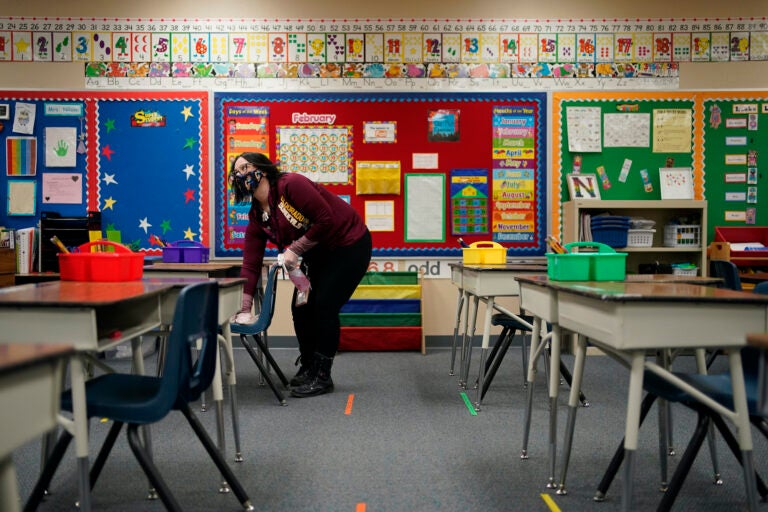Fundraising Concepts to Assist In Saving Temecula Schools and Programs
Fundraising Concepts to Assist In Saving Temecula Schools and Programs
Blog Article
Comprehending the Importance of Institutions in Kid Advancement and Community Growth
Schools act as essential organizations for youngster advancement and community growth, supplying environments where academic accomplishments are complemented by the growing of social abilities and exposure to varied point of views. These instructional settings not only advertise vital reasoning and effective communication but likewise foster compassion via collective projects. Schools' engagement with local neighborhoods with service-learning campaigns strengthens the bond between households and instructional institutions. This cooperative partnership emphasizes the significance of colleges in supporting active citizenship and lifelong knowing habits. However, what are the particular mechanisms whereby these institutions attain such extensive influences?
Academic Achievement
Academic success serves as a cornerstone of youngster growth, offering the structure upon which future learning and success are constructed. Institutions play a crucial duty in fostering this scholastic growth, providing structured environments where kids can get necessary understanding and cognitive skills. Standardized curricula ensure that trainees gain proficiency in core topics such as maths, science, and language arts, which are critical for both college and specialist opportunities.
In enhancement to presenting basic academic abilities, schools additionally grow vital thinking, analytic capacities, and intellectual curiosity. These cognitive expertises are important for browsing complicated real-world situations and adapting to the ever-evolving needs of the modern workplace. Teachers, as facilitators of understanding, utilize varied instructional strategies to satisfy different understanding styles, consequently making the most of individual trainee possibility.
Additionally, scholastic success is closely linked to self-confidence and motivation. Children who experience scholastic success are most likely to develop a positive self-concept and a lifelong enthusiasm for learning. Institutions likewise use different resources, such as libraries and technology, which even more enhance the instructional experience and prepare students for a technologically innovative society.
Social Skill Growth
Beyond scholastic success, the function of colleges in social ability growth is indispensable. Schools offer as a key place for youngsters to discover and practice necessary social abilities such as participation, interaction, and problem resolution. In the organized setting of a classroom, students interact with peers, educators, and various other institution personnel, providing numerous opportunities to create these essential capacities.
Efficient social ability advancement in institutions is helped with through team activities, collaborative tasks, and extracurricular programs. These interactions assist students recognize social standards, build empathy, and foster a feeling of neighborhood. Team projects instruct trainees just how to work with each other towards a typical objective, listen to various viewpoints, and navigate arguments constructively.

The growing of social abilities throughout academic year lays a structure for future individual and expert partnerships. Save Temecula Schools. As students develop, the ability to effectively team up and interact ends up being progressively essential, underscoring the school's critical role in alternative kid growth
Exposure to Diversity
Exposure to diversity in schools is basic to cultivating an inclusive state of mind and broadening trainees' point of views. Schools function as a microcosm of the wider society, and coming across varied societies, languages, and socioeconomic histories within this setting gears up trainees with vital abilities for browsing a progressively globalized world. This exposure encourages compassion, reduces prejudices, and advertises common regard amongst peers.
Diverse class additionally boost social and cognitive growth. Study suggests that trainees who engage with peers from different backgrounds exhibit much better analytic skills and imagination. They learn to appreciate various perspectives, which enhances classroom conversations and fosters an extra vibrant knowing experience. Moreover, this understanding of diversity prepares pupils for future work environments that value multicultural competence.

Community Interaction
The advantages of varied class expand past the school walls, fostering a strong sense of neighborhood involvement among trainees. By connecting with peers from various social, socioeconomic, and ethnic histories, pupils obtain a broader point of view and a gratitude for variety. This exposure motivates them to come to be energetic residents that are eager to add positively to their communities.
Colleges that highlight community interaction typically integrate service-learning projects, which allow pupils to deal with real-world problems while applying scholastic skills. These tasks not just boost pupils' understanding of their coursework but additionally impart a feeling of duty and compassion. Collaborations in between colleges and neighborhood organizations offer trainees with opportunities to get involved in community occasions, even more strengthening try this their role as proactive area members - Save Temecula Schools.
In addition, adult and community involvement in colleges strengthens the bond between academic establishments and the communities they offer. Via these efforts, institutions play a crucial function in nurturing neighborhood interaction and cultivating social development.
Lifelong Understanding Routines
Establishing lifelong discovering practices is crucial for a child's continuous growth and versatility in an ever-changing world. Schools play a critical function in instilling these routines by producing a setting that promotes interest, important reasoning, and a love for expertise. Via extracurricular activities and diverse curricula, instructors encourage students to explore numerous topics, examine information critically, and use their finding out to real-world circumstances.

Moreover, institutions give a structured atmosphere where youngsters can create self-control and time management abilities, both of which are crucial for constant understanding. By highlighting the relevance of setting goals, mirroring on progression, and adapting techniques, schools prepare trainees to browse the intricacies of grown-up life, ensuring they remain lifelong students and contributors to society.
Conclusion
Finally, institutions are necessary in cultivating youngster development and community growth by giving settings conducive to academic achievement, social skill growth, and exposure to diversity. Through collaborative projects and interactions, schools boost vital reasoning, empathy, and communication skills. Community interaction initiatives further strengthen the bond in between neighborhood areas and academic establishments. Eventually, institutions grow lifelong learning habits, equipping people with the essential expertise and skills to add favorably to culture.
In the structured setting of a classroom, trainees communicate with peers, teachers, and various other school personnel, offering many possibilities to develop these critical capabilities.
In significance, exposure to variety within colleges not only improves private pupils but likewise reinforces the social fabric of the area as a whole.
The advantages of varied classrooms prolong past the college walls, promoting a solid feeling of community interaction among trainees.Colleges that stress community interaction usually incorporate service-learning projects, which enable trainees to resolve real-world problems while applying academic skills. Partnerships between institutions and neighborhood companies provide students with opportunities to take part in neighborhood occasions, better strengthening their duty index as aggressive community members.
Report this page